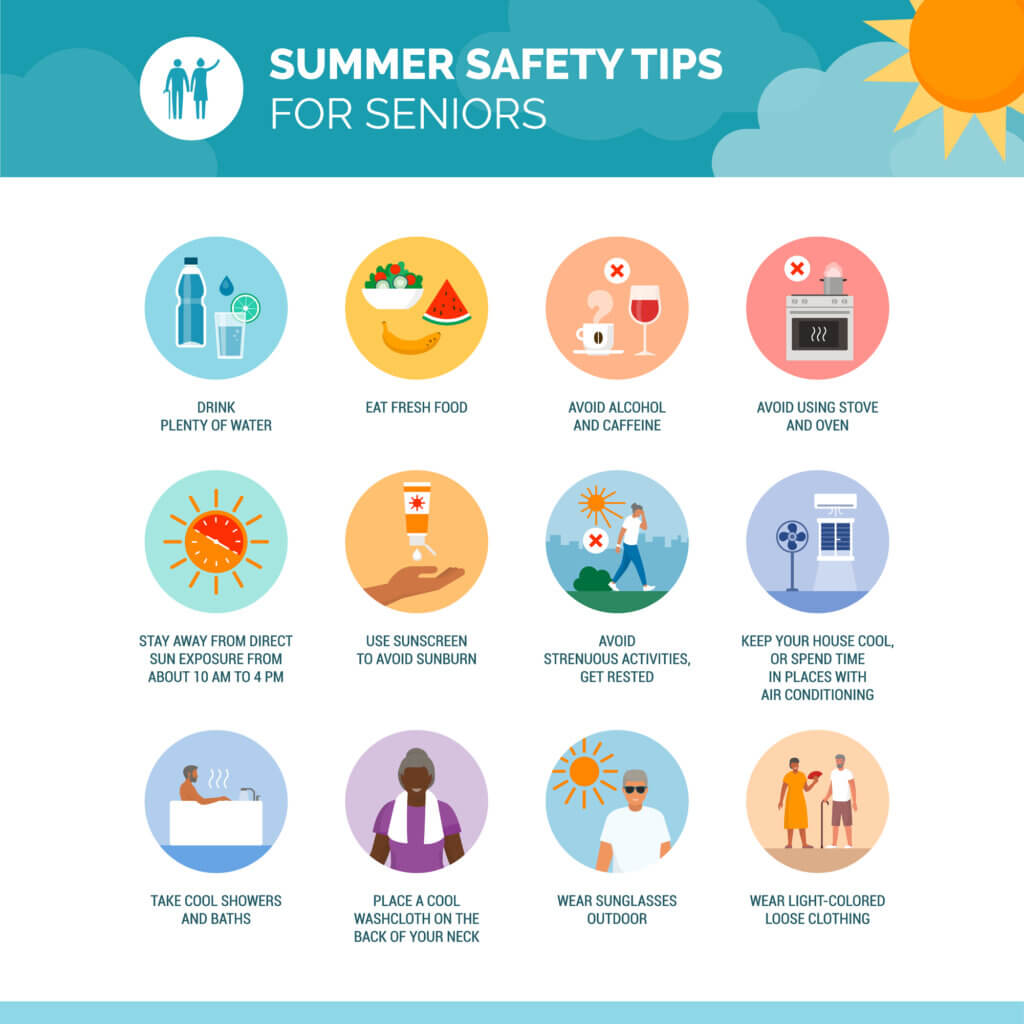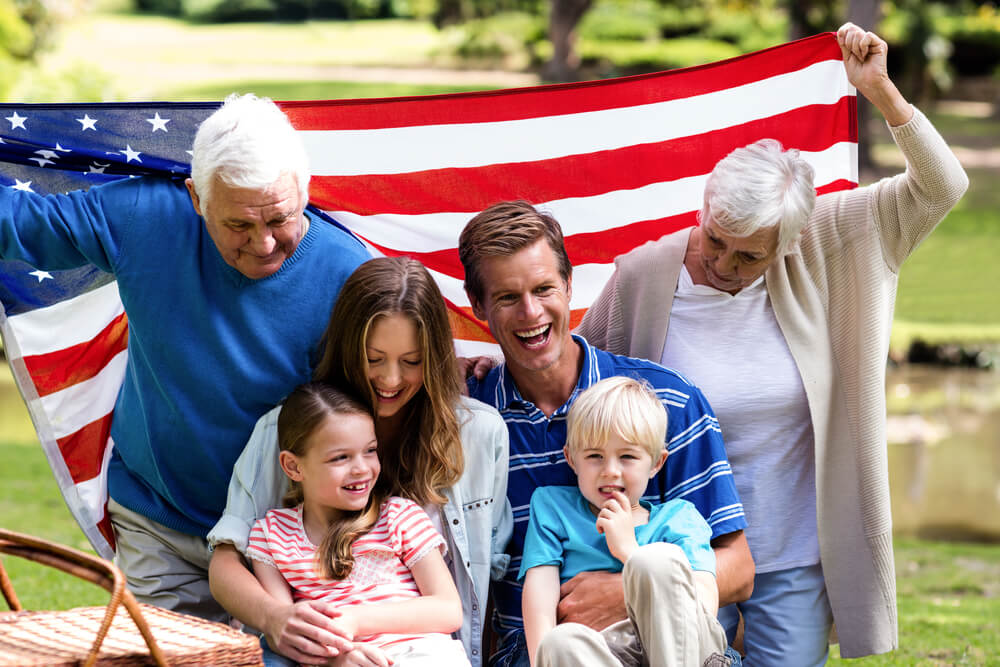Why Summer Poses a Serious Risk for Seniors
As temperatures rise, so do health risks for older adults. While summer brings sunshine and longer days, it can also lead to serious heat-related illnesses—especially for seniors. Aging bodies process heat differently, and chronic conditions or medications can increase vulnerability. That’s why it’s critical for families and caregivers to recognize the signs of heat-related stress and proactively manage summer wellness.
Understanding How Summer Heat Affects Seniors
1. Reduced Ability to Regulate Body Temperature
As people age, their bodies lose efficiency in cooling down through sweating and circulation. Seniors often have a blunted thirst response, meaning they may not feel thirsty even when they’re dehydrated. This can lead to dangerous overheating before anyone notices.
2. Medication Interference
Many common medications—such as diuretics, antihypertensives, and antidepressants—can alter how the body handles heat or conserves fluids. This makes seniors more prone to:
-
Heat exhaustion
-
Dehydration
-
Electrolyte imbalances
3. Underlying Health Conditions
Heart disease, diabetes, and dementia all impact the body’s ability to cope with heat. Seniors with mobility issues may also find it difficult to reach cooler areas, hydrate frequently, or adjust their environment effectively.
Signs of Heat-Related Illness to Watch For
Even mild overheating can quickly become serious. Look for early symptoms of heat-related stress, including:
-
Dizziness or lightheadedness
-
Rapid pulse
-
Nausea or vomiting
-
Confusion or irritability
-
Headache
-
Muscle cramps
-
Fatigue
If not addressed promptly, these can progress to heatstroke, a life-threatening emergency that requires immediate medical attention.
How to Protect Seniors During Hot Weather
1. Prioritize Hydration
Encourage water intake throughout the day, even when the senior doesn’t feel thirsty. Include hydrating foods like cucumbers, watermelon, and smoothies. Avoid caffeinated or sugary drinks that can increase dehydration.
2. Monitor Indoor Temperatures
Keep indoor spaces cool and well-ventilated. Fans can help, but air conditioning is best. If A/C isn’t available, consider helping your loved one spend time in community centers or malls during peak heat hours.
3. Adjust Daily Routines
Plan walks, errands, or appointments early in the morning or in the evening when it’s cooler. Encourage light, breathable clothing and sun protection like hats and sunglasses.
4. Review Medications With a Healthcare Provider
Make sure the senior’s healthcare team is aware of all prescriptions and any summer-specific risks they may pose. Adjustments may be necessary for safe heat exposure.
5. Use a Check-In System
Whether it’s family, neighbors, or a professional caregiver, regular daily check-ins are crucial. Caregivers can help monitor hydration, observe for symptoms, and assist with adjustments to routines or environments.
How Home Care Services Can Help
Professional caregivers from Home Matters provide more than just companionship—they offer crucial wellness oversight during high-risk seasons like summer. Our trained staff can:
-
Ensure seniors stay hydrated and cool
-
Recognize early signs of heat-related illness
-
Provide transportation to air-conditioned locations
-
Assist with meal prep, personal care, and medication reminders
Proactive Care Makes All the Difference
Summer should be a time of enjoyment—not emergency. By understanding how summer heat impacts senior health and taking preventive steps, families and caregivers can help older adults stay safe, healthy, and comfortable.
Whether you need occasional check-ins or full-time support, Home Matters is here to help your loved one thrive in every season.







